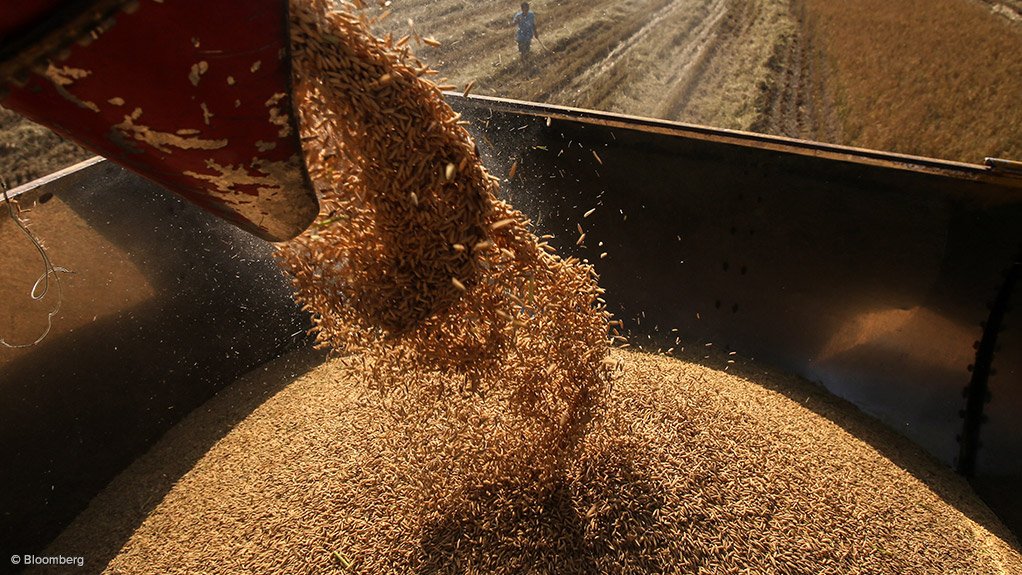While agriculture is the most resilient sector of the South African ecnomy and, in light of prevailing production conditions, it is necessary for agriculture to be removed from political rhetoric, stressed grain farmers' association Grain SA chairperson Louw Steytler.
The grain sector was hit by severe drought in January and February, resulting in a bleak production forecast, with the country’s maize crop estimated to decline by 32% compared with last year. The repercussions of the drought were expected to not only lead to a significantly difficult season this year but also in 2016.
Steytler was speaking at the 2015 Grain SA Congress at NAMPO Park, in Bothaville, Free State, on Wednesday, where Minister of Agriculture, Forestry and Fisheries Senzeni Zokwana stated that South Africa’s farmers were the best in the world and “government owe[s] it to them to keep them in production”.
Zokwana affirmed his commitment to South Africa’s grain industry and government’s willingness to partner with organised agriculture to ensure sustainable grain production. He assured the industry that it should continue to seek markets for its products, despite the current drought.
Although focus had been placed on ensuring sustainable production from the country’s agriculture industry during the land reform process, which was also the theme of the 2015 congress, the Minister emphasised the importance of allocating time and resources to the general maintenance of sustainable production.
“I am concerned that this drought will also impact on our ability to produce next season,” Zokwana stated, calling on the input and support of all stakeholders in the value chain to avert a disaster not just for the farmers but the whole sector.
He pointed out that government would ensure the establishment of a team to investigate possible drought disaster relief.
“If we are failing farmers, we are failing the people," Zokwana added.
He also urged South Africa’s various grain trusts to continue their partnership with Grain SA to maintain sustainability during a time of transition in the industry, adding that the department was close to resolving the difficulties new-era commercial farmers faced when attempting to access finance.
“The absence of an operational solution for this matter is not the only obstacle to speed up transformation, but it is the biggest,” Zokwana said.
LAND REFORM GUIDE
Presenting a working document at the congress, Agri Sector Unity Forum (ASUF) chairperson Japie Grobler highlighted the importance of successful land reform while maintaining the productive capacity of land, maintaining domestic food security, being able to support less fortunate neighbouring countries and earning valuable foreign exchange through exports.
“In addition to what government has initiated, ASUF suggests guiding principles, stakeholder participation, an implementation framework and monitoring practices to bring all land reform activities to an agreed conclusion,” Grobler noted.
FINANCIAL WELLNESS
In a first for the agriculture industry, Grain SA launched financial wellness products for its members and their farmworkers in a new strategic partnership with Momentum.
“Labour is one of Grain SA’s strategic focus areas and members are encouraged to instil good labour practices on their farms.
“We have made it our objective in partnership with Momentum to bring a product to the industry that is specifically designed to cater for the needs of farmworkers at highly competitive rates. We realise the value that economies of scale bring to those who need it most,” Steytler said.
EMAIL THIS ARTICLE SAVE THIS ARTICLE
To subscribe email subscriptions@creamermedia.co.za or click here
To advertise email advertising@creamermedia.co.za or click here











